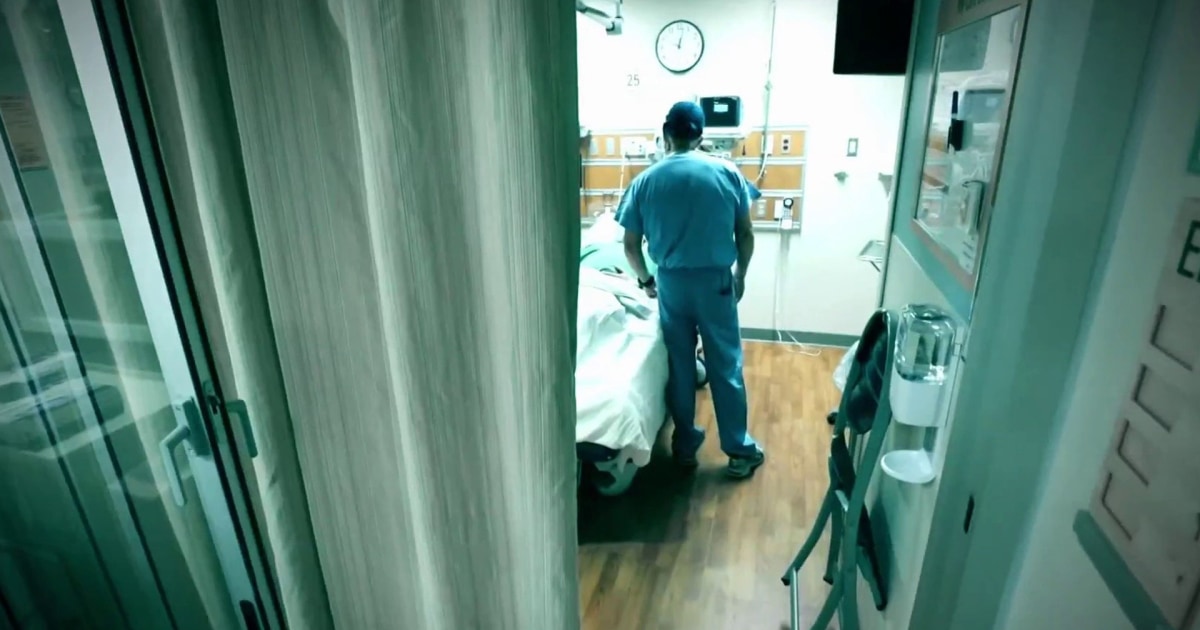Stanford Autonomic Disorders Program in the News
- Neurology Journal Podcast
Frequency of OH in Isolated REM Sleep Behavior Disorder
Dr. Elizabeth Coon talks with Dr. Mitchell G. Miglis about the frequency of orthostatic hypotension in isolated REM sleep behavior disorder.
- Yahoo! News
What we know about COVID vaccines and 'extremely rare' heart problems
One unfounded claim making the rounds on social media is that Buffalo Bills safety Damar Hamlin's cardiac arrest earlier this month was caused by the COVID-19 vaccine. This assertion isn't based on facts, but heart problems after vaccination have been reported in a very small number of cases.
- TODAY.com
New study finds link between POTS and long COVID
NBC's Today Show highlights Dr. Mitchell Miglis and the Stanford Autonomic Division's ongoing research efforts in Long-COVID. Dr. Miglis' team is currently recruiting patients who developed Postural Tachycardia Syndrome (POTS) after COVID, as well as those who had COVID and fully recovered, and those who never had COVID, for an NIH-sponsored study to better understand the mechanisms of Long-COVID dysautonomia. If interested, please email: rubas@stanford.edu.
- VJNeurology
Update on biomarkers in isolated RBD and future directions
Mitchell Miglis, MD discusses a recent landmark review on identifying biomarkers in isolated REM sleep behavior disorder that predict the development of diseases such as Parkinson's, DLB, & MSA.
- WATE 6 On Your Side
COVID-19 long haulers are developing debilitating, chronic condition called POTS
Some COVID-19 patients have developed post-infectious neurological symptoms suggestive of dysautonomia. Persistent dizziness, lightheadedness, or tachycardia upon standing, that manifests months after COVID-19 infection, could indicate a diagnosis of postural orthostatic tachycardia syndrome (POTS). Dr. Mitchell Miglis speaks about the association of COVID-19 and dysautonomia and his efforts to spearhead a Stanford research study looking at autonomic dysfunction in post-COVID syndrome.
- NBC News
Some COVID-19 patients aren't getting better. Major medical centers are trying to figure out how to help.
NBC News consults Dr. Mitchell Miglis on lingering symptoms in patients months after COVID-19 infection. Dr. Miglis shares his thoughts on the medical community's rising suspicion of the virus's damage to the autonomic nervous system.
- US News
What Is REM Sleep Behavior Disorder?
Usually when we dream our minds are vibrant and active while our bodies remain motionless. REM sleep behavior disorder is a sleep condition where the paralysis that normally takes hold of our bodies during REM sleep malfunctions. What results is a frightening condition characterized by active and sometimes violent dream enactment. Dr. Mitchell Miglis discusses the underlying pathophysiology of the disorder, its potential as a marker for Parkinson's disease, and his research in the field.
- SELF
What you need to know about autonomic nervous system disorders
What do Beyoncé and autonomic disorders have in common? More than you might think. American singer, songwriter and sister to Beyoncé, Solange Knowles revealed she’s been diagnosed with an autonomic disorder. Self Magazine asks director of Stanford’s autonomic disorders program and professor of neurology & neurological sciences, Safwan Jaradeh, MD, to give us a breakdown of exactly what that could mean.
- HuffPost
Does Poor Sleep Lead To Dementia?
As we age, and our natural sleep architecture becomes increasingly fragmented, we should all be doing what we can to try and get a good night's sleep.
- Stanford Scope Blog
Why untreated sleep apnea may cause more harm to your health than feeling fatigued
Today on the Stanford Center for Sleep Sciences and Medicine blog on the Huffington Post, sleep neurologist Mitchell Miglis, MD, explains why individuals with untreated sleep apnea have an increased risk of suffering from heart attack and stroke as well as developing high blood pressure, high cholesterol and diabetes.



